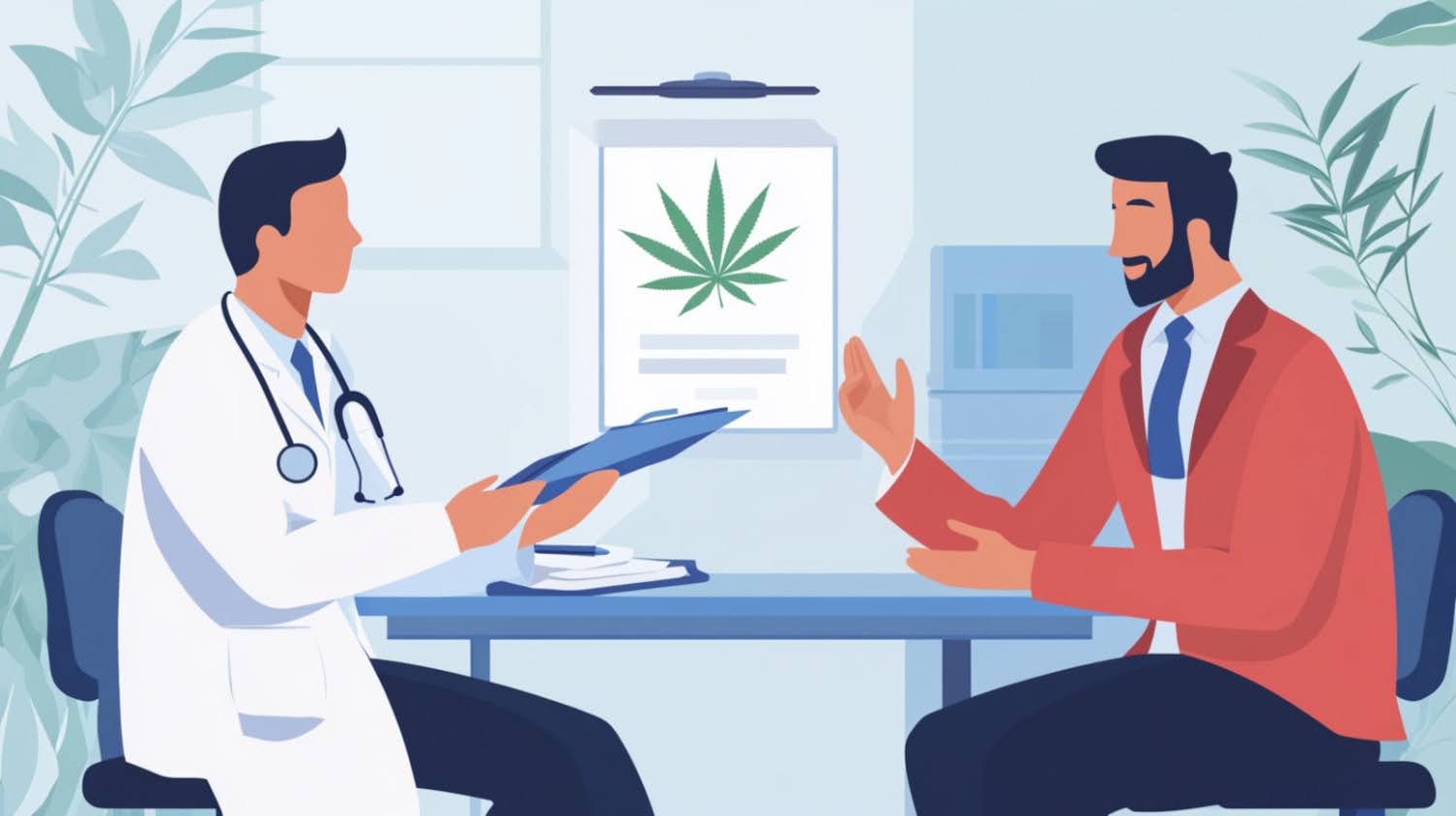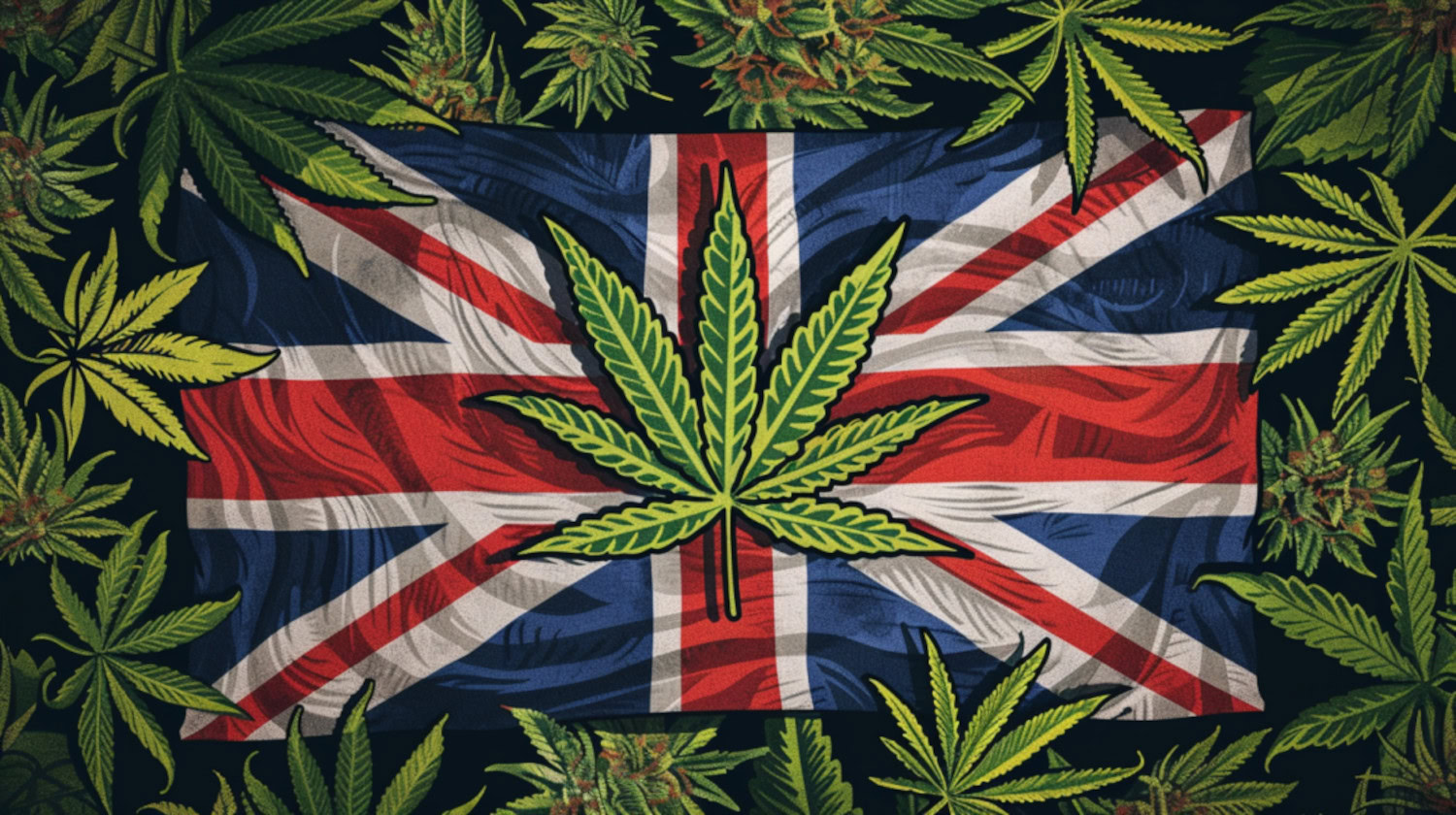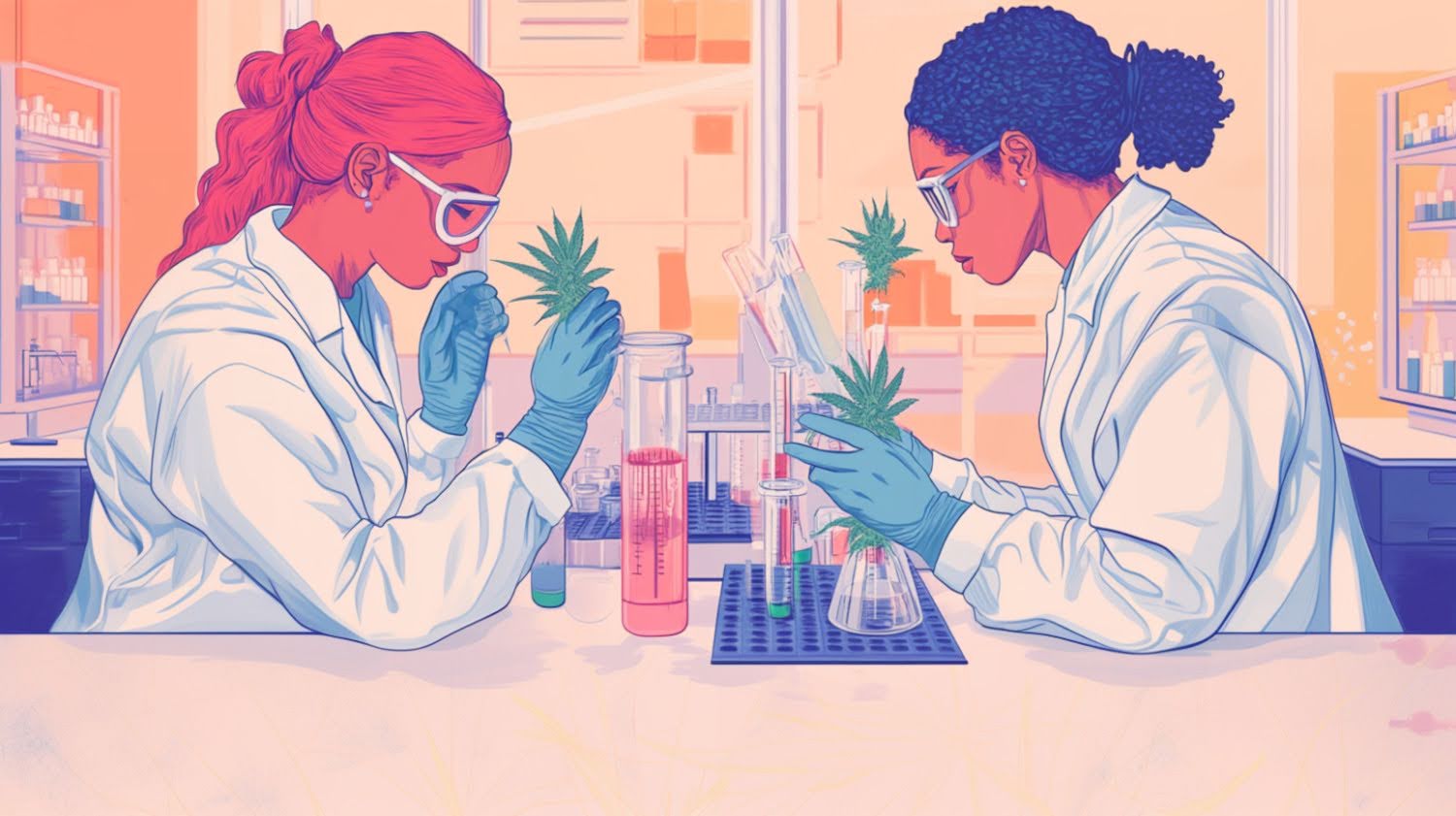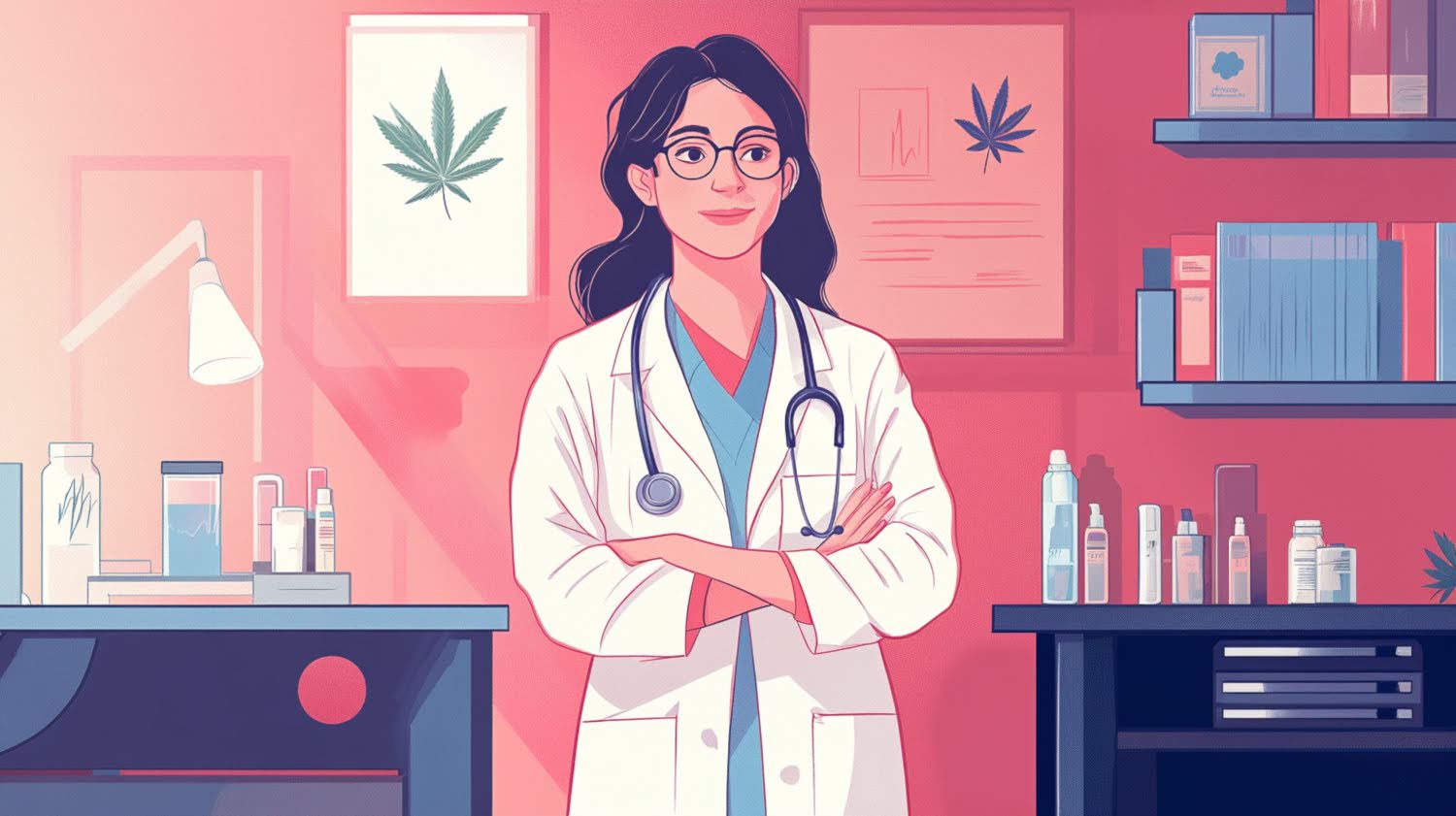In This Article
- Common Cannabis Side Effects and How to Avoid Them
- Is Cannabis Withdrawal Real?
- Do You Have to Get High as a Medical Cannabis Patient?
- What’s the Difference Between CBD vs THC?
- Is a Cannabis Overdose Possible?
- Natural vs Synthetic Cannabis: What’s the Difference?
- How Regulated Medical Cannabis Protects Patients in the UK
- Possible Medication Interactions with Cannabis
- Legal Protections for Cannabis Patients in the UK
- What Are the Pros and Cons of Weed?
- What Is the Safest Way to Consume Cannabis?
- What Does Weed Do to Your Blood?
- How Do You Know If Your Weed Is Safe?
- Is Weed Bad for You?
Key Takeaways
- Cannabis may help with pain, anxiety, or sleep, but it can also cause side effects like dizziness or anxiety, especially if you take too much THC.
- In the UK, medical cannabis is legal with a prescription and comes with strict safety rules to protect patients.
- CBD may help without causing intoxication, while THC may cause a high and potential side effects at high doses.
Is weed safe? With myths and misinformation everywhere, finding reliable answers can be surprisingly difficult. This article cuts through the noise, exploring the risks, benefits, and realities of cannabis use in the UK.
Get Approved Online for Medical Cannabis Relief in the UK
100% Legal | Discreet Delivery | Ongoing Consultations
Common Cannabis Side Effects and How to Avoid Them
While cannabis may offer potential benefits, it’s not without its side effects, especially if used improperly or in high doses.
Some consumers feel euphoric or notice changes in how they perceive time and space. Others find their senses heightened or feel unfocused.
But not everyone has a positive experience. Common side effects can include dry mouth, dizziness, increased heart rate, and short-term memory lapses. Some users feel more intense side effects, including anxiety, panic, or even depression.1 And for some, high THC levels can trigger paranoia or even mild hallucinations.2
THC works by binding to CB1 receptors in the brain, which may be able to help with nausea, appetite, and pain. But high THC may also cause side effects like confusion or sedation.
The good news is that most of the potential side effects of cannabis are manageable – or avoidable altogether – by following a handful of tips.
- Start low and go slow: Begin with a small dose, especially if you’re new to cannabis or using a high-THC product.
- Choose the right strain: Opt for strains higher in CBD and lower in THC to reduce the risk of intoxicating effects.
- Stay hydrated: Keep water nearby to manage dry mouth and other mild discomforts.
- Avoid mixing substances: Combining cannabis with alcohol or other drugs can intensify side effects and increase risks.
Is Cannabis Withdrawal Real?
If you use cannabis heavily or regularly over a long period of time, stopping suddenly can lead to withdrawal symptoms like anxiety, irritability, trouble sleeping, and loss of appetite. These symptoms usually start one to two days after quitting and can last up to two to three weeks for heavy users.3
To manage withdrawals, stay hydrated, eat well, and exercise regularly. Sticking to a consistent sleep schedule and using relaxation techniques can also help ease stress and cravings. If symptoms are severe, talk to a doctor.
In rare cases, long-term THC use can lead to cannabinoid hyperemesis syndrome (CHS), which leads to cycles of nausea, vomiting, and stomach pain. Surprisingly, hot showers often provide more relief than standard anti-nausea medications.
Do You Have to Get High as a Medical Cannabis Patient?
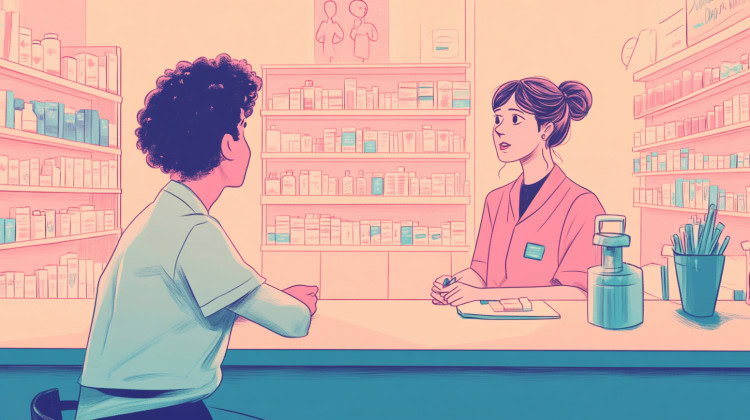
Not at all. The high from cannabis comes from THC, but many medical products are made to keep THC levels low while still delivering benefits. For example, CBD-dominant products may potentially ease pain, anxiety, and epileptic symptoms without making you feel intoxicated.
In the UK, medical cannabis is prescribed based on your specific needs.
What’s the Difference Between CBD vs THC?
THC is the main intoxicating compound in cannabis. It binds to CB1 receptors in the brain, producing the high associated with recreational use. While THC may have therapeutic benefits, it can also cause side effects like anxiety and paranoia in high doses.
Unlike THC, CBD does not produce a high. It may potentially have anti-inflammatory, anti-anxiety, and neuroprotective properties. Studies also suggest it has potential in treating epilepsy, psychosis, and even pain with minimal side effects.4
Is a Cannabis Overdose Possible?
The term overdose can be misleading when it comes to cannabis. Unlike opioids or alcohol, cannabis overdose isn’t considered life-threatening. That said, taking too much can lead to uncomfortable symptoms – sometimes called greening out – like anxiety, paranoia, nausea, and dizziness.
Here’s how to avoid having too much cannabis:
- Follow your doctor’s advice: Stick to the recommended dose, especially if you’re new to cannabis.
- Go easy on edibles: They’re tricky to dose, and since their effects take longer to kick in, it’s easy to overdo it.
- Choose regulated products: Medical cannabis from a pharmacy is lab-tested, so you know exactly what you’re getting.
Natural vs Synthetic Cannabis: What’s the Difference?
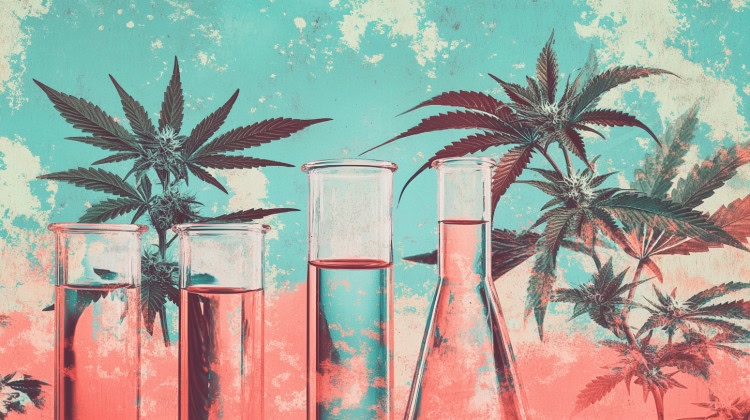
Natural cannabis, derived directly from the plant, contains a mix of cannabinoids (like THC and CBD), terpenes, and other compounds. These work together to create the "entourage effect," which may enhance its therapeutic benefits.
Synthetic cannabis products made in a lab, such as Nabilone for chemotherapy-induced nausea and vomiting, mimic THC’s effects but lack the full spectrum of plant compounds. While they can be effective, they may not offer the same effects as natural cannabis.
In the UK, Sativex (a natural cannabis-based medicine) and Epidyolex (a purified CBD product) are approved for prescription. Doctors can also prescribe unlicensed cannabis-based medicines if they think it’s the right choice for the patient.
How Regulated Medical Cannabis Protects Patients in the UK
Medical cannabis in the UK is tightly regulated to keep patients safe and provide high-quality treatment. Here’s how the system works:
- Legal Regulations: You can’t just pick up medical cannabis at a shop. It’s only available with a prescription from a Specialist doctor. This means it’s always used under medical supervision. In some cases, doctors can prescribe unlicensed cannabis-based medicines if licensed products aren’t suitable for a patient’s specific needs.
- Lab Testing: Every product is thoroughly tested for potency, purity, and contaminants. For inhaled products, the Medicines & Healthcare products Regulatory Agency (MHRA) sets strict microbial limits to lower risks. If a product exceeds these limits, the prescriber has to confirm they’ve evaluated the risks and still think it’s safe for the patient.
- Pharmacy Dispensing: Medical cannabis is dispensed through specialist licensed pharmacies, so you know you’re getting the right product and dosage. This adds an extra layer of safety and accountability.
These rules protect patients from the risks of unregulated cannabis, like contamination or inconsistent potency. Even unlicensed cannabis-based medicines have to meet high safety standards, so patient health always comes first.
Possible Medication Interactions with Cannabis
Cannabis can interact with certain medications, which might change how they work or lead to unwanted side effects. Here are some common examples to watch out for:
- Blood thinners (like warfarin): Cannabis could increase the risk of bleeding.
- Sedatives or anti-anxiety meds (like benzodiazepines): Mixing these medications with cannabis might make you feel extra drowsy or foggy.
- Antidepressants (like SSRIs): Cannabis could increase the likelihood of experiencing side effects like dizziness or confusion.
This isn’t an exhaustive list of potential medication interactions. Always check with your doctor before using cannabis, especially if you’re on other prescriptions.
Legal Protections for Cannabis Patients in the UK
Medical cannabis is legal in the UK with a prescription, but recreational use is illegal. To prove you’re using it legally:
- Keep your medicine in its original packaging with the pharmacy label.
- Carry a copy of your prescription and, if possible, a letter from your doctor.
- Bring ID, such as a valid passport or driving licence that matches your prescription details.
What Are the Pros and Cons of Weed?
Pros: For some people, cannabis may help with pain, anxiety, sleep, or appetite, especially when other treatments haven’t worked.
Cons: Cannabis may cause side effects like dry mouth, dizziness, or anxiety, especially if you take too much THC.
Note: Cannabis isn’t a guaranteed fix, but the UK may allow it as an option when other medications haven’t helped. Always talk to a Specialist to see if it’s right for you.
What Is the Safest Way to Consume Cannabis?
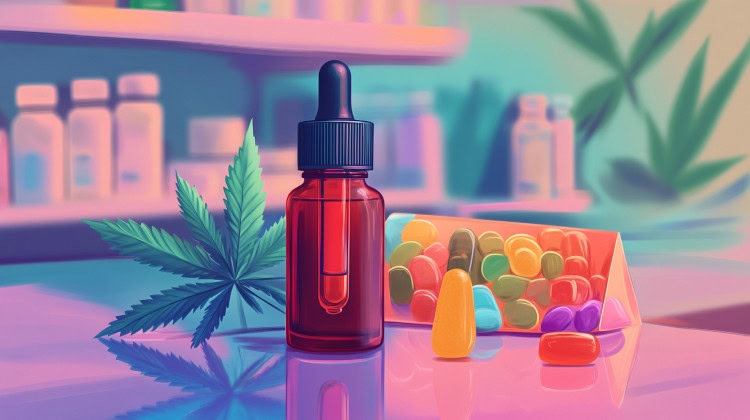
Vaporising may be a safer way to use cannabis flower, although studies have not conclusively proven this yet. It heats the plant without burning it, so you'll inhale less tar. Vaporising may still release other harmful toxins, though, and the heat can still irritate the lungs. In the UK, devices like the Storz & Bickel Mighty Medic and Volcano Medic are approved for medical use.
Edibles and tinctures are also good options to avoid harming lungs like inhaled methods of consumption, but may be more difficult to dose due to their long onset time.
What Does Weed Do to Your Blood?
Cannabis can increase heart rate and raise blood pressure for a short time. Researchers are still studying long-term effects on the heart and blood vessels.
How Do You Know If Your Weed Is Safe?
Only get cannabis from a licensed pharmacy. Lab-tested products are the best way to know you’re getting something safe and high-quality.
Is Weed Bad for You?
Cannabis may be able to help some people, but using too much or using it the wrong way can lead to unwanted side effects. That’s why it’s important to use it carefully and under medical supervision.
Get Approved Online for Medical Cannabis Relief in the UK
100% Legal | Discreet Delivery | Ongoing Consultations
- Turner AR, Spurling BC, Agrawal S. Marijuana Toxicity. In: StatPearls [Internet]. StatPearls Publishing; 2023. https://www.ncbi.nlm.nih.gov/books/NBK430823/ ↩︎
- Ng T, Gupta V. Tetrahydrocannabinol (THC). In: StatPearls [Internet]. StatPearls Publishing; 2023. https://www.ncbi.nlm.nih.gov/books/NBK563174/ ↩︎
- Connor JP, Stjepanović D, Budney AJ, Le Foll B, Hall WD. Clinical management of cannabis withdrawal. Addiction. 2022;117(7):2075-2095. doi:10.1111/add.15743 ↩︎
- Peng J, Fan M, An C, Ni F, Huang W, Luo J. A narrative review of molecular mechanism and therapeutic effect of cannabidiol (CBD). Basic & Clinical Pharmacology & Toxicology. 2022;130(4):439-456. doi:https://doi.org/10.1111/bcpt.13710 ↩︎
The information in this article and any included images or charts are for educational purposes only. This information is neither a substitute for, nor does it replace, professional legal advice or medical advice, diagnosis, or treatment. If you have any concerns or questions about laws, regulations, or your health, you should always consult with an attorney, physician or other licensed professional.

